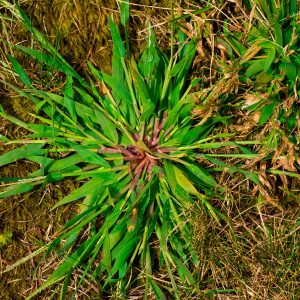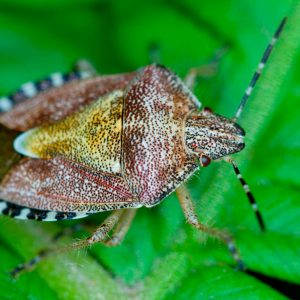Getting Rid of Crabgrass and Chinch Bugs Before Winter Comes
We believe that a healthy lawn starts with a lawn free of all pests and diseases. As such we offer treatments for your lawn which are non-toxic to all soil types and are specific to the soil type of your lawn. We can also remove infestations from your lawn including those of crabgrass and chinch bugs, which are especially bad right now. We offer good solutions to these two problems and will do our best to make sure you have a healthy lawn.
Crabgrass – The Creeping Menace
 Crabgrass is a small plant that looks harmless at first given its small size and unassuming appearance, but it is far from harmless. Crabgrass has been know to take over entire lawns in a short period of time. This is possible thanks to how quickly they germinate and reproduce. If you notice crabgrass in your lawn you should call us immediately and we will prevent it from spreading.
Crabgrass is a small plant that looks harmless at first given its small size and unassuming appearance, but it is far from harmless. Crabgrass has been know to take over entire lawns in a short period of time. This is possible thanks to how quickly they germinate and reproduce. If you notice crabgrass in your lawn you should call us immediately and we will prevent it from spreading.
Crabgrass is an annual plant with tiny flowers that grows on grass and sidewalks and spreads easily. The way to stop the spread of crabgrass is not to mow your lawn too short and make sure you have a healthy turf. The turf must also be dense and thick so that there is no space for the crabgrass If you do this it will be hard for the crabgrass to spread to your lawn.
If you spot crabgrass you should call a professional right away. As soon as you call us we will come as fast as we can. We will pull the crabgrass that is already there and at the same time spray your lawn with special treatments that will prevent crabgrass from growing.
To prevent the spread of crabgrass in the first place it is recommended to get Grass Reseeding and Soil aeration. Grass Reseeding just basically just adds more grass to the lawn via adding more seeds creating a thicker, healthier lawn more resistant to weeds and drought. Soil aeration basically creates small holes in the grass to allow air in. This makes the grass healthier and more resistant and better fertilization of the soil. This can help with crabgrass as the grass will be more able to defend itself.
Chinch Bugs Can Kill (your lawn)
 Chinch bugs are pests that feed off the sap of grass blades, they are only 4 mm in length making them very difficult to identify, as such you could get major infestation before you even know what’s happening. They leave dead patches of grass and unlike those affected by white grubs grass affected by them will not survive without treatment. Fortunately we are known for our swift and effective destruction of this insect infestation and our fast rebuilding of your lawn with treatments.
Chinch bugs are pests that feed off the sap of grass blades, they are only 4 mm in length making them very difficult to identify, as such you could get major infestation before you even know what’s happening. They leave dead patches of grass and unlike those affected by white grubs grass affected by them will not survive without treatment. Fortunately we are known for our swift and effective destruction of this insect infestation and our fast rebuilding of your lawn with treatments.
Chinch Bugs lay their eggs in the months of May and June and the hatchlings are only the size of a pinhead making them almost impossible to identify by a non-professional. There is not much you can do to prevent the spread of chinch bugs to your lawn without professional help, all the same keeping your lawn healthy and watered helps a lot.
If you notice a chinch bug problems call a professional immediately. There is little you can do to stop the spread of chinch bugs alone, grass affected by them will not survive without treatment. Once we arrive we will spray your lawn with non-toxic sprays that will help rebuild the grass and at the same time kill the chinch bugs, eliminating them and their effects from your lawn.
Take Action Now
If you notice one of these two problems call a professional immediately. We will send a trained specialist at any time you designate as we have a very flexible schedule. We will use products that are not harmful to either you or your family to do the extermination of whatever pest you call them to exterminate. The elimination of the infestations of crabgrass and chinch bugs are among our many specialties and we know exactly the best ways to get rid of them.
In conclusion, we can help you with both lawn care and infestations should you have one. On top of this we are masters at eliminating the chinch bugs and crabgrass that are especially bad this season If you ever need our help, we will be ready to help and will not stop until your problem is fixed.




